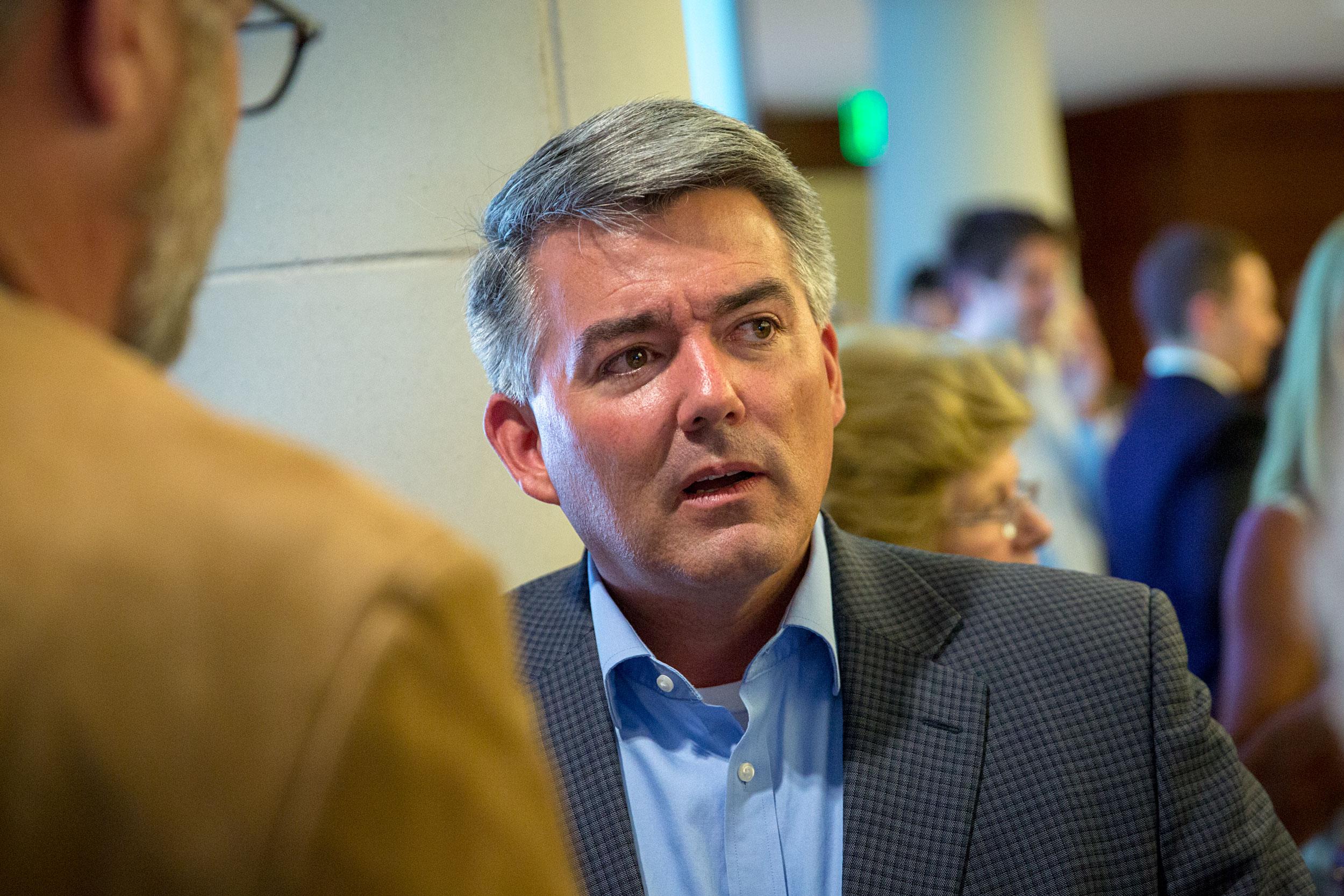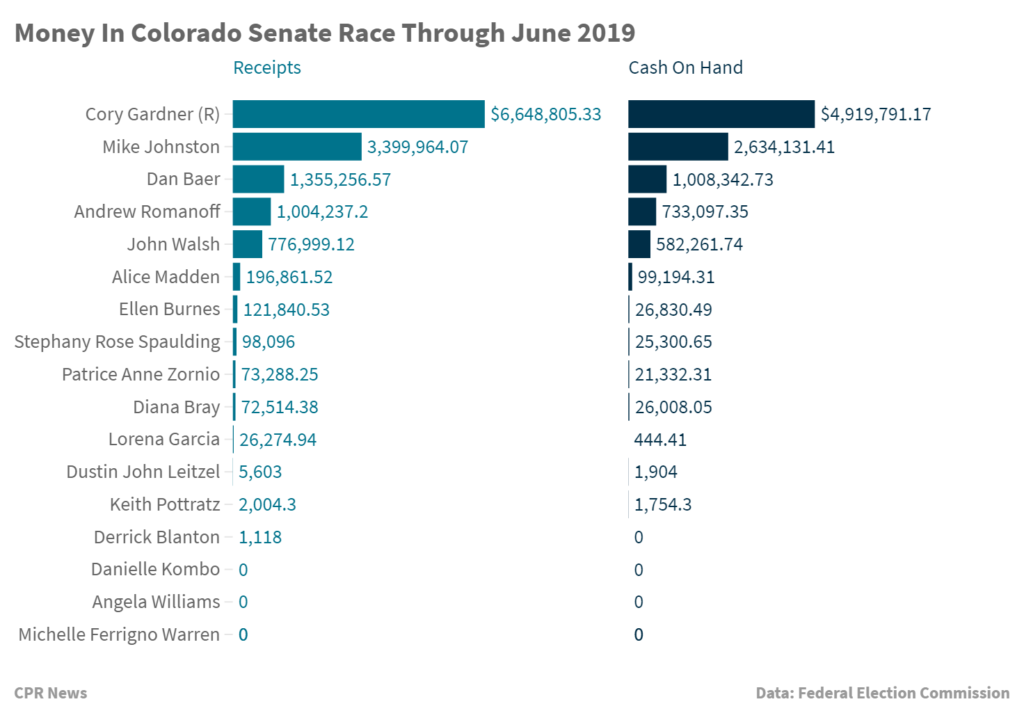
The competition for Colorado’s U.S. Senate race has grown larger with Hickenlooper jumping in. It's becoming more expensive, too.
Altogether, candidates have more than $13 million invested in the race so far. It’s expected to be one of the biggest elections in 2020.
“As competitive as this is, especially with this crowded of a field and for one that's kind of favored to flip or rated as a toss-up, I wouldn't say that that's too expensive,” said Brendan Quinn with the Center for Responsive Politics. “I'd expect this one to be one of the most expensive in the country up there with Arizona and Maine probably.”
Arizona has $13.8 million in its senate race and Maine has $7 million. Quinn said it’s hard to tell how these numbers compare to other races in other states and in past years because elections have increasingly become more and more expensive with each cycle.

Incumbent Sen. Cory Gardner has the most money out of the pack of 17 running for the senate seat, with $6.6 million in receipts. That's half of the total amount in the race, according to July 15 filings to the Federal Election Commission.
Three Democrats, Mike Johnston, Dan Baer and Andrew Romanoff, reported having funds in the millions, while three other Democrats reported having no money at all.
Johnston, a former state senator representing northeast Denver, has the second-most money raised behind Gardner, with $3.3 million in receipts. Baer, a former diplomat from President Barack Obama’s administration, has $1.3 million. Former state Rep. Romanoff has $1 million.
The Biggest Unknown: Where Hickenlooper Stacks Up.
According to mid-July FEC filings, the former governor had $3.1 million in receipts and $836,276 in cash on hand at the end of June for his presidential campaign. Quinn said Hickenlooper can easily move money from his presidential campaign over to his senate campaign.
“Most of the current or former House and Senate members who are currently running for president just transferred some, if not all of the money that they had in those campaign accounts to their presidential account,” he said. “It's just an easy transfer from one committee to the other.”
A candidate running for federal office can make transfers as long as the committee making the transfer has no outstanding debts, according to the FEC. New filing reports will be released in October.
Quinn said Gardner is fiscally ahead of the pack for much the same reason Donald Trump is in the race for the presidency. Gardner has also had more time to fundraise and he’s also the only Republican running. It's not surprising that he has the most money.
“The Republicans’ money is a lot less split. So, of course, he has quite a bit more money than the highest-raising Democrat,” he said. “Most of the time, about 88 percent of the time, the candidate who raises the most money wins.”
Of course, that wasn’t the case in 2014, when Democratic Sen. Mark Udall was defeated by then-Rep. Cory Gardner. Udall outraised Gardner $20.5 million to $12.3 million. Gardner captured 48.2 percent of the vote to Udall’s 46.3 percent.









